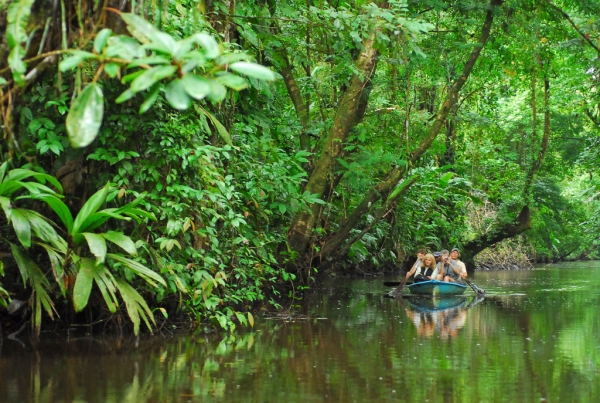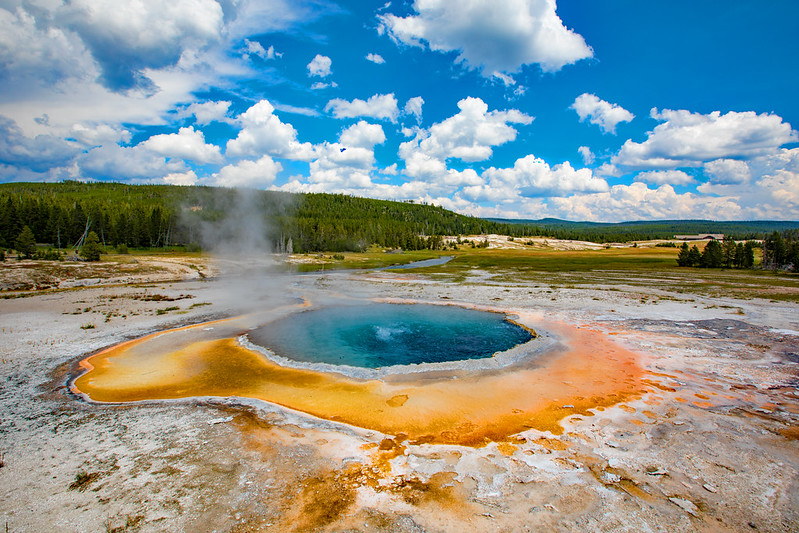

The Greater Yellowstone region is the largest intact ecosystem in the continental United States and at the southern end of a corridor of wild lands stretching to the Yukon. Approximately 98% of the land and bodies of water in Teton County, Wyoming have some level of protection, including the world’s first national park: Yellowstone. Four million visitors come to experience the incomparable wildlife, scenery, and quality of the environment. The source of water for our nation is Yellowstone National Park which serves as the wellspring for 8 major rivers. The opportunities are innumerable and unparalleled to recreate, enjoy life, receive inspiration, and be well.
The Jackson Hole & Yellowstone Sustainable Destination Program was created by the Riverwind Foundation to strengthen and unify the programs, policies, and practices for environmental stewardship, social responsibility, and economic vitality in Teton County, Wyoming. The Program was created to address:
The Riverwind Foundation is the coordinator of the Program. The Program has a seven-member working team, twelve-member tactical steering committee, and 57-member strategic council. The Program establishes partnerships on a project-by-project basis and has engaged over 300 businesses, nonprofit organizations, government agencies, and schools. These projects include sustainability training and technical assistance, assessments and certification, and resident and visitor outreach and education. As the Jackson Hole Travel & Tourism Board’s Sustainability Coordinator, the Riverwind Foundation coordinated the process for developing the Sustainable Destination Management Plan (SDMP) with destination stakeholders, contractors, and residents.
The Riverwind Foundation and Jackson Hole have received awards and recognition, including:
Tourism is the basis of Jackson Hole’s and the Greater Yellowstone region’s economy and a significant source of economic support for the national parks, forests, rivers and lakes, wildlife refuges, and private protected areas as well as businesses and local government. The Jackson/Teton County Comprehensive Plan and land development regulations prioritize environmental stewardship over all land uses. Local stakeholders have the opportunity and responsibility to communicate our values for environmental protection and integrity to the millions of annual visitors with the intention of influencing their behavior during and after their visit.
Visitors generate millions of US Dollars in entrance fee revenue for Yellowstone National Park’s and Grand Teton National Park’s budgets. These funds support accessibility improvements, campgrounds, infrastructure, roads, native fish restoration, aquatic invasive species mitigation, and more. In addition, there are nonprofit organizations that contribute funding to enhance and protect Yellowstone’s and Grand Teton National Park’s cultural, historic, and natural resources. In return, the annual economic impact of tourism in Yellowstone National Park and Grand Teton National Park to surrounding communities is more than $1 billion and 15,000 jobs, important for supporting the numerous local, regional, and national conservation organizations that work to protect public and private lands in the Greater Yellowstone region.
The Jackson Hole & Yellowstone Sustainable Destination Program supports the sustainability programs of the parks and other protected areas through training workshops, facilitating collaboration with private sector organizations and resources to increase the effectiveness of sustainability initiatives, and promoting government messaging on conservation and sustainable behaviors to residents and visitors. In addition, the Program provides information resources and strategies to support local, regional, and national conservation organization’s programs to manage, restore, and protect public and private lands, wildlife, and natural resources.
Riverwind Foundation has assisted local government and the private sector in understanding and prioritizing sustainability and responsible tourism. This support has resulted in:
Financial support for the Riverwind Foundation’s Jackson Hole & Yellowstone Sustainable Destination Program comes from government grants (61%), private foundation grants and donations (36%), and program receipts (3%). The projects supported by this funding have accomplished the following:
In addition to the resolution for Jackson Hole to be a world-leading sustainable community and destination, a five-year goal of the Jackson Hole & Yellowstone Sustainable Destination Program was to achieve sustainable destination certification by a GSTC –accredited body. On March 2020, Jackson Hole received EarthCheck Sustainable Destination Certification, the first destination to do so in North America.
Several key improvements for destination management and sustainability have been identified through the certification process, most notably the development of the Sustainable Destination Management Plan (SDMP) focused on visitor management and destination sustainability. A Destination Stewardship Council comprised of representatives from the diverse segments of the community and destination is being established to oversee the development and implementation of the SDMP and coordinate this framework with other key management plans and initiatives. A significant input to the composition of the SDMP was engagement with the community through workshops and focus groups, presentations, and surveys. Visitor input was factored into the SDMP through visitor surveys and social media reviews.
Coincident with the implementation of SDMP will be the continued sustainability training and technical support of businesses and organizations, education of school faculty and students, and outreach and engagement of the public.
The projects and activities of Jackson Hole & Yellowstone Sustainable Destination Program serve as a model or menu from which other communities that are tourism destinations can plan their own sustainable tourism programs. This model can be summarized as follows:
The lessons learned from the Jackson Hole & Yellowstone Sustainable Destination Program that can support other communities and destinations include the following:
© Linking Tourism & Conservation (LT&C) 2019
We are grateful that you support the work and mission of LT&C! We accept donations through Credit Card, PayPal or international bank transfer:

Donate through Credit Card
Please click the Donate button and then choose your PayPal account
Bank details:
Cultura Sparebank
Pb. 6800, St. Olavs plass
N-0130 Oslo
Name: Linking Tourism & Conservation,
Account no.: 1254 05 95168
IBAN: NO8712540595168
BIC/SWIFT: CULTNOK1
Routing BIC: DNBANOKK
Please mark payments with your name and/or email address
Sign up for an LT&C membership by filling in the details below.
Would you like your LT&C-Example/Initiative to be listed on our website? Please fill in the form below.